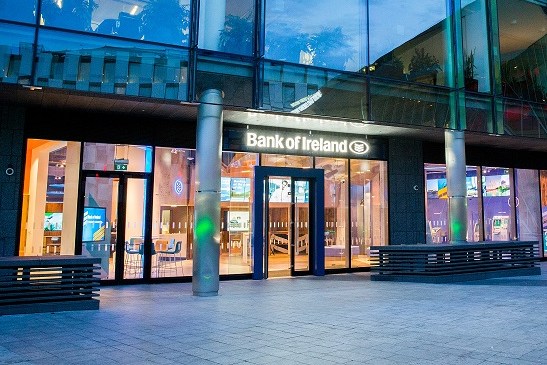EY forecasts Irish GDP to rise by 4.8% in 2023 and 4.3% in 2024; says inflation has peaked at 5.3% for 2023, returning to 2% by 2025.
Ireland’s economy remains resilient and faces into the second half of 2023 and beyond from a position of real strength, according to EY Ireland’s Economic Eye Summer 2023 Forecast.
EY forecasts continuing economic growth, further job gains and inflation beginning to subside.
“The dust is beginning to settle on the economic shocks triggered by the pandemic and the war in Ukraine”
After several years of outsized economic growth, EY is now forecasting more moderate growth for the Irish economy, with GDP expected to rise by 4.8% in 2023 and 4.3% in 2024, and Modified Domestic Demand to grow by 3.4% in 2023 and 3.0% in 2024.
While growth is moderating in Ireland, it will continue to outperform many economies around the world, exceeding forecasts for the Euro area (0.9% in 2023), the UK (0.4%) and overall global growth (2.7%). In Northern Ireland, EY is forecasting that the economy will expand by 0.3% in 2023, before accelerating to 0.8% in 2024 and 1.6% in 2025.
Adaptable business base
“The Irish economy has demonstrated its resilience and has plenty of strengths to leverage in support of sustainable and inclusive growth, including a skilled workforce, world-class universities and a business friendly environment, all of which are key in terms of attracting and retaining foreign direct investment (FDI) as well as enabling and empowering our world-leading indigenous entrepreneurial talent,” said Graham Reid, Head of Markets and Partner, EY Ireland.
Ireland’s strong economic performance is a result of a strong and adaptable business base, clever policy frameworks that support and enable success, and a highly skilled and productive workforce.
The forecast does, however, sound some notes of caution. European monetary policy decisions will impact the real economy with a delay, while a tight labour market and the threat of underlying inflation remaining ‘sticky’ pose potential risks for an economy where maintaining competitiveness will be key.
“The dust is beginning to settle on the economic shocks triggered by the pandemic and the war in Ukraine and our Summer Economic Eye forecasts solid growth for Ireland over the coming years, albeit at a more moderate pace than the exceptional growth of recent years,” said Dr Loretta O’Sullivan, EY Ireland Chief Economist.
“Easing inflationary pressures should lend support to spending by households and firms, with further job creation also in prospect. Global uncertainty in the tech and other key sectors, together with tighter monetary policy, are generating some headwinds, but the waning of the energy price shock of last year is a tailwind for households and businesses alike.”
Last year saw a sharp rise in consumer prices, with inflation running at 7.8% for the year. This significantly elevated inflation has been keenly felt by households, with those on lower incomes among the hardest hit. Headline inflation remained high in the opening months of 2023 but has begun to ease notably.
This trend looks set to continue as lower wholesale energy prices feed through to households’ bills and firms’ production costs, together with the impact of tighter monetary policy being felt in the real economy. EY forecasts that inflation will decelerate to 5.8% in 2023 before reducing further to 3.0% in 2024.
It will likely take the best part of the forecast horizon to 2025, however, to reach the 2.0% figure that the European and other Central Banks are targeting, and underlying inflation may prove stickier than expected.
Dr O’Sullivan said: “Encouragingly, inflation appears to be past the peak experienced towards the end of 2022 and headline inflation should fall back to 2.0% by 2025. This is thanks in large part to the moderation of energy prices, with tighter monetary policy beginning to feed through to the real economy. The process may be bumpy, however, as temporary measures (e.g., reductions in fuel duties) are phased out. There is also a possibility that underlying inflation, which excludes food and energy, could prove sticky and remain high for longer than anyone would want it to.”
Demand for workers outstripping supply
As the pandemic receded, employment rallied robustly in 2022. With more jobs added in the opening months of 2023, the total number in employment now stands at a record high of over 2.6 million. Importantly, this rebound has been broad-based, with employment in most sectors higher than before the pandemic, including up by one-third in the telecommunications sector despite some highly publicised rounds of redundancy.
EY is forecasting that labour market conditions will stay relatively ‘tight’ over the coming years, with employment increasing by 2.8% this year, before moderating to 1.5% in 2024. A slight rise in the unemployment rate (currently 3.8%) is envisaged for 2024 and 2025, but it is projected to remain low at just over 4.0%.
Dr O’Sullivan added: “Current labour market conditions are what economists refer to as ‘tight’ – that is where demand for workers, particularly those in key areas, outstrips the available supply. For employers, this means more challenges in filling vacancies. For employees, it brings more opportunities and greater bargaining power around both wages and working conditions. For the economy, a tight labour market can give rise to risks in terms of overall competitiveness, particularly if wage growth becomes detached from productivity growth over the longer term.
“Labour market conditions are projected to stay tight in the period ahead, with further employment growth and only a small uptick in the unemployment rate forecast. In this context measures to boost the labour force will be key, such as increasing the participation rate. Upskilling and retraining, as well as employers offering flexibility, will be important in ensuring Ireland can continue to attract workers to meet any skills gaps.”





